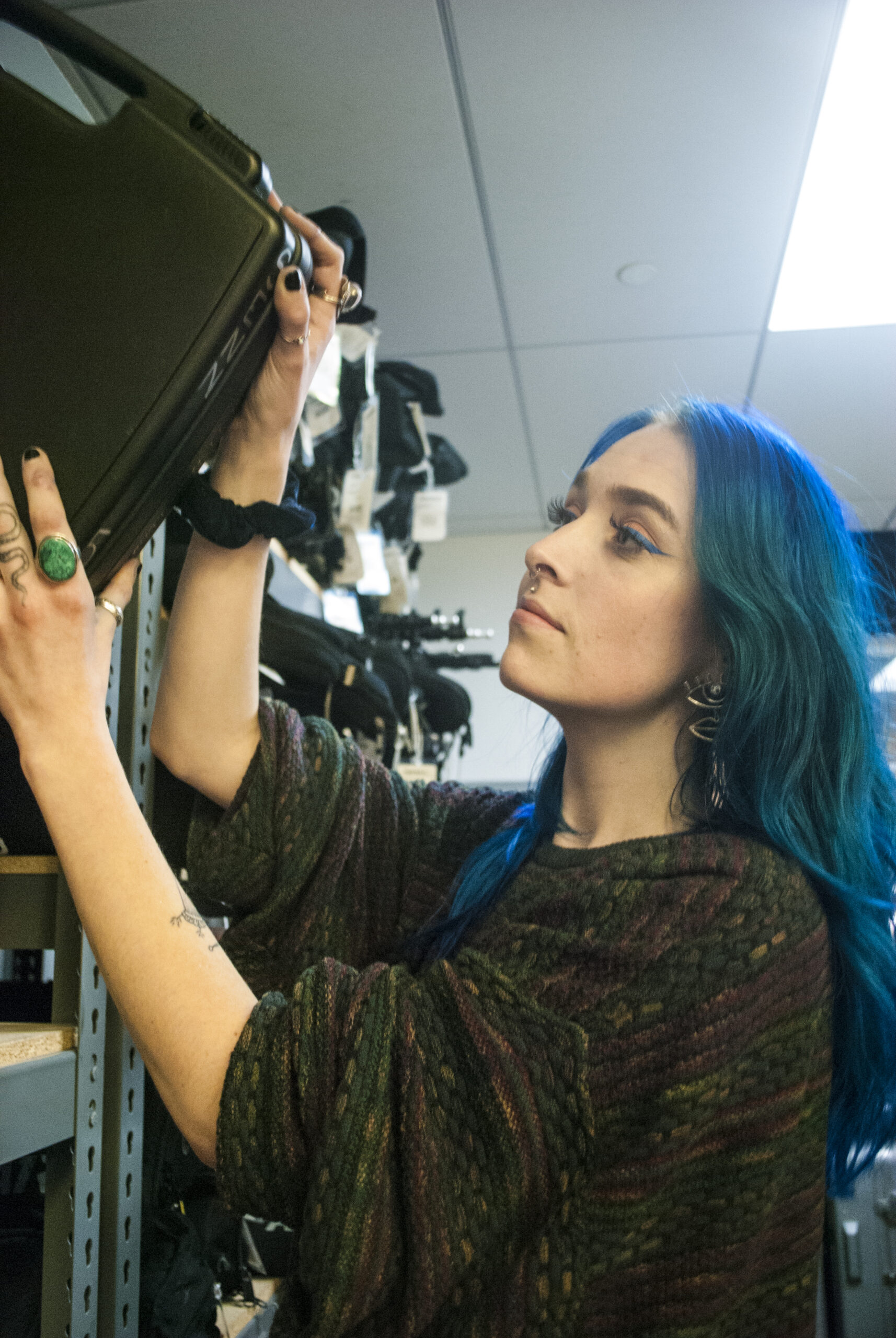The URI Media Equipment Center, located in Ranger Hall provides students with production equipment they may need for courses and projects. Photo by James Singer.
The University of Rhode Island’s Media Equipment Center (MEC), located in Ranger Hall, is a hub designed to offer Harrington School of Communication and Media students with access to production technology.
The MEC offers cameras, laptops, lighting and tripods that students in programs such as film media and journalism can rent to produce video and audio content.
Prior to the renovation of Ranger Hall, Lead Information Technologist Tony Balko and the staff of the MEC were located in Swan Hall.
Balko started working in a similar-style MEC known as a Film Cage at an independent school called Pittsburgh Filmmakers at the University of Pittsburgh. Balko took the position of lead information technologist at URI after working at Pittsburgh Institute for Neurodegenerative Diseases (PIND) many years ago.
“I think having that appreciation for resources carried over [from the research institute] and I think it showed me how to manage things on a larger scale,” Balko said.
Balko saw the position of lead technologist as something he could truly thrive in at the University.
“I saw the job and it was in my wheelhouse and when I came here it was very different because we were in a different building.” said Balko. “But talking to the faculty, it seemed very exciting and there was a lot of momentum here.”
The Media Equipment Center hires individuals who show interest and can learn how to use, troubleshoot and lend media to students in the Harrington School.
Senior film and media and writing and rhetoric major Veronica Wood has worked at the MEC for three years. Wood has learned all about the different equipment and technology available to students in her position.
“We have different access levels for all of the equipment,” said Wood. “The levels start with the Harrington basic level and gradually go up as students continue to take higher level classes with the Harrington School.”
According to Wood, the training to work at the MEC depends on the memory and troubleshooting experience of the employee.
“I wanted to learn about the equipment and get more hands on experience with the equipment since I am a film major,” Wood said. “You kind of have to know what to look for, and know when the equipment comes back to us, and you have to make sure that everything is there and working.”
On top of leading the MEC, Balko is involved with all of the electronic troubleshooting within Ranger Hall.
“I help departments figure out what they need and then I train students and create all that policy,” Balko said.
Balko created a policy for the Media Equipment Center that relies on the attention of both the student and employees in case of any problems that may occur with the equipment.
“Part of our agreement is to check if the equipment works before you leave and assuming the student does their due-diligence and noticed something that we didn’t notice, they tell us,” said Balko. “Let’s say it is missing an SD card, no problem, we have enough lying around that we can replace it.”
Over the course of every semester, Wood has seen a consistent variety of new media equipment available to be lent out in the Center based upon the needs of the classes at URI.
“We basically get new equipment all the time,” said Wood. “Every semester we get new orders of what we can give out to students, so that is something that is always changing.”
With the second floor of Ranger Hall being expanded upon soon, Balko hopes to see some changes for the MEC’s future.
“It is relying on many different factors to where [the] change goes,” said Balko. “My fantasy is to have the room reconfigured to fit more equipment.”





